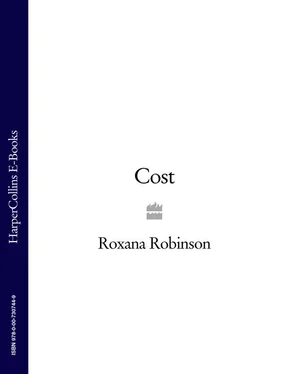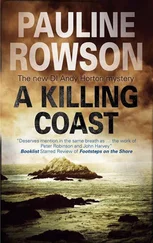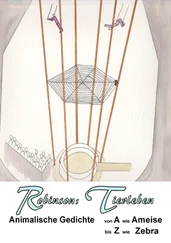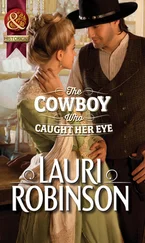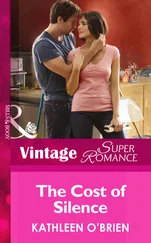She set down the tray and went back inside. In the front hall she called to her parents, still in the guest room: “Lunch is ready.”
“All right.” Her mother's voice was high and sweet and frail, like an old woman's. “I'm just putting on my scarf.”
Her father did not answer. He would be standing beside her mother, his awful windbreaker zipped up to his chin, waiting, proud of his patience.
Julia waited, too. For this moment—the lunch tray out on the porch, the water pitcher coated with fine cold droplets, the sandwiches neatly cut—she was idle.
On the hall floor lay an ancient, threadbare Persian rug, its fringe ragged and meager. On the wall an old etching hung over a small, ponderous mahogany table. Beside it was a black Windsor chair. Sunlight irradiated the plaster walls, slanting past the etching. It was a picture of Paris at twilight, black roofs and chimneypots against a crepuscular sky. Julia liked the idea of Paris—its narrow streets and gilded salons, its worldliness and complexity—set here in the bare old house with its painted wooden floors, in the empty windswept countryside. She liked the sense it gave of the great reach and swing of the world. She liked the house itself, its simplicity, its worn surfaces, its offer of comfort and shelter. Its dry cedary smells, and its deep, deep silences.
The Windsor chair's narrow spindles fanned gracefully out, the lines set in rhythmic intervals, like a dark chord against the pale wall. The chair, the table, the picture of Paris, the wash of sunlight all seemed to form some mysterious balance. The house was soundless. Shafts of sunlight struck through the rooms, across the walls, the old rugs, the rickety furniture. The day was suspended, the earth paused. In this moment it seemed that a celestial order ruled. The sun flooded through her, she felt herself dissolving into luminous silence. She was here, in this moment, in the old house. Nothing was more luxurious than this deep soundlessness and light. Her parents, whom she loved, and who loved her—who were the great high cliffs of her world, still towering over her, though beginning to dissolve into the radiant dusk—were nearby. They were alive, they were here, and about to emerge into the sunlit hall.
Suspended, invisible, Julia waited for her parents to appear. She wondered what their life was like, their private life, when they were alone together in a room. Their shared silences. Who were you when you were unobserved? What were the things they kept from her? What were the things you kept from your children?
What did she keep from her own children? Very little now. When your children were small you tried to conceal your doubts and fears, your pettiness and failures. You tried to be what they needed—strong and certain, pure and loving. Of course they learned quite soon who you were—weak, uncertain, impatient, ungenerous. There was nothing of your character they did not know.
Though there were parts of your life you kept to yourself. There were things Julia would never tell them, things that should stay unshared, unconfessed. There were secrets that should die with people.
When Julia was alone, her personality unbound, drifting, she had no idea what she was like. Would her children recognize her? Didn't she twist herself, quickly, instinctively, into the shape she always wore for her children? Was it different from the shapes she wore for other people? For her parents?
The guest-room door opened, and Katharine stood in the doorway, leaning on her cane. Over her hair was a blue paisley scarf, tied dashingly at the nape of her neck, like a Gypsy's. She smiled at her daughter.
As a young woman, Katharine had been beautiful, with high cheekbones, liquid brown eyes, a square Gallic face and aquiline nose. She was still a beauty; the soft skin was weathered, but the cheekbones and profile were still firm. Her loveliness lay now in her warm luminous eyes, her inclusive smile: Katharine had always enjoyed her days.
Julia saw her mother's younger face beneath this one, as though a steadily thickening net, a veil of age, were being set over it. The earlier face was still present, but dissolving into this one, soft, lined, mottled.
Katharine made her way slowly down the hall. She wore baggy blue pants, a loose flowered shirt. Her small body was now shapeless— thick and bulky at its middle, slack and gaunt elsewhere. The womanly landmarks—waist, breasts, hips—had slid into insignificance.
Katharine walked unevenly, her torso dipping with each step. Her hip had been injured long ago, before she'd been married. It was part of the family history. An accident: icy roads, a skidding milk truck. Before it, Katharine had swum, skied, danced, played tennis. She'd famously climbed to the top of Mount Washington with her older brothers. Afterward, for a while she'd seemed to recover, but over the years everything had steadily worsened. Her spine had shifted, compensating for the damaged hip. An ankle had given way and had been fused. The other ankle weakened, a shoulder froze. In spite of operations and therapy, her body had become increasingly twisted. Now she leaned heavily on a cane, her movements slow and awkward.
What was her mother like, alone in a room?
Alone with her pain. Pain was the thing that was never mentioned. Katharine never spoke of it, nor did Edward, though they all knew it was present. There was nothing to be done; it was to be endured. To talk about it, even to admit it existed, was somehow shameful.
Her mother's life swam around Julia, a dense transparent layer of existence, like the veil of atmosphere surrounding her planet. Julia held in herself the sunny stretch of her mother's childhood as the darling of the family, the youngest child, the only girl. The Depression, when she'd nearly had to drop out of college. The accident, then the dark stretch of the war. Her domestic world, her husband, her three children. The ebbs and flows of Katharine's marriage—would Julia ever know about these things? Did she want to? Could she bear knowing them? She did not want to know her mother's pain, it was unbearable to consider. The intimate knowledge of her mother's life was charged, dangerous, too powerful and frightening to approach. Though in some way she did know these things, she knew them by breathing in her mother's life with her own. Julia was encased by her mother's life; she saw her own life through it, it was her air. We think back through our mothers, if we are women, Virginia Woolf had said. But it was alarming to think back, to venture into the closed and secret chambers of the mother's life.
Now Katharine smiled up at her. “I love those yellow walls in the guest room,” she said. “It's such a pretty color. And thank you for the flowers. You know rugosas are my favorites.”
“Oh, you're very welcome,” Julia said lightly.
Her tone—airy, noncommittal—implied that the walls just happened to be that shade, that the flowers had somehow gotten into the room by themselves, that she didn't know her mother loved rugosas. Julia would not admit to trying to please her mother, though she did. She would not accept her mother's gratitude or praise. She resisted her mother, held her at a tiny stubborn distance. Some subterranean line had been drawn between them, sealing Julia off.
Edward appeared now, behind Katharine. “I wanted to look up where we are,” he complained, “but Julia doesn't have an atlas.”
“I do have an atlas,” Julia corrected him. “I just can't find it right now.”
“Well, I don't know how you can say you have it if you can't find it,” said Edward to himself.
“Edward,” Katharine said humorously. She caught Julia's eye and shook her head. She was used to this, distracting attention from Edward's bad manners, making him seem charming and funny. Julia saw her father smile to himself, pleased, like a naughty boy.
Читать дальше
